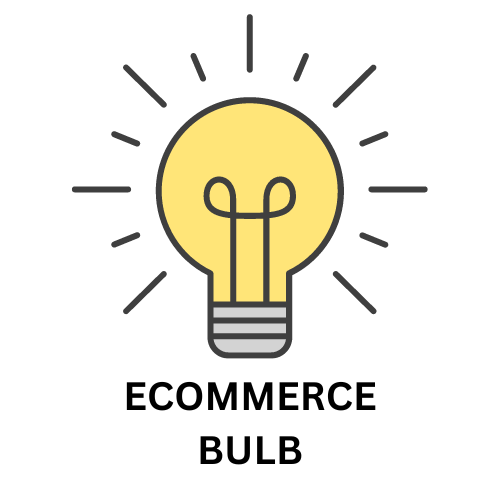We’re going to discuss SalesForce eCommerce platform integration possibilities, & the possibility of Optimizely Integration with SalesForce, in addition to other platforms and apps.
Optimizely integration with Salesforce
Optimizely offers several integrations with Salesforce to enhance data synchronization, analytics, and customer intelligence. Here are some key features:
- Data Synchronization: Optimizely integrates with Salesforce to synchronize data, allowing you to connect test variations with down-funnel customer impact. This helps in creating targeted audiences in Optimizely based on Salesforce customer records.
- Experimentation and Personalization: You can use Optimizely to run experiments and personalize experiences on your website, mobile apps, and servers. This integration helps in linking online events with offline events tracked in Salesforce, providing data-driven insights for better decision-making.
- Marketing Automation: Optimizely Campaign integrates with Salesforce to automate the reconciliation of data. Salesforce transmits recipient and personalization data to Optimizely Campaign, which then replies with send status, delivery, and response data.
- CMS Integration: Optimizely CMS and Commerce can be integrated with Salesforce CRM and Service Cloud to ensure your website’s visitor data is synced with your CRM, providing personalized experiences for website visitors.
These integrations help streamline operations, enhance customer experience, and improve sales by leveraging data-driven insights and targeted experimentation.
Does Optimizely Integrate with SalesForce?

Yes, Optimizely integrates with Salesforce. This integration allows you to sync data between the two platforms, enabling you to personalize your marketing efforts based on customer behavior and interactions.
Key benefits of integrating Optimizely with Salesforce:
- Unified customer view: Gain a comprehensive view of your customers across both platforms.
- Personalized marketing: Create targeted campaigns based on customer data from Salesforce.
- Improved lead scoring: Use Optimizely data to score leads and prioritize your sales efforts.
- Enhanced conversion tracking: Track the impact of your marketing campaigns on conversions.
To integrate Optimizely with Salesforce, you'll typically need to use a third-party integration tool or custom code. There are also pre-built integrations available through the Salesforce AppExchange.

What Programs integrate with Salesforce?

Salesforce integrates with a wide range of programs and tools to enhance its functionality across various business operations. Here are some key categories of programs that integrate with Salesforce:
1. Marketing Automation
- Pardot: A B2B marketing automation tool owned by Salesforce, allowing lead nurturing, email marketing, and analytics.
- Marketo: For email campaigns, lead management, and customer engagement tracking.
- HubSpot: Combines CRM with inbound marketing tools, including email marketing and lead generation.
- Mailchimp: Integrates for email marketing and campaign management.
2. Customer Support & Service
- Zendesk: Synchronizes support tickets with Salesforce accounts and contacts.
- ServiceNow: Manages IT services and operations, integrating incident and customer management with Salesforce.
- Freshdesk: Integrates to provide multichannel customer support.
3. Collaboration & Communication
- Slack: A collaboration tool owned by Salesforce that helps teams communicate and track sales progress.
- Microsoft Teams: Enables team collaboration and access to Salesforce data within the Teams platform.
- Google Workspace (formerly G Suite): Integrates Google Drive, Gmail, and Google Calendar with Salesforce for email, document sharing, and scheduling.
4. Finance & Accounting
- QuickBooks: Syncs customer and financial data for invoicing, accounting, and financial reports.
- Xero: Another accounting software that integrates to streamline billing and payments.
- Stripe: Integrates to process online payments and track transactions directly in Salesforce.
5. Project Management
- Trello: Allows task and project management, syncing boards with Salesforce records.
- Asana: Helps manage projects and tasks by linking them with Salesforce data.
- Jira: Useful for teams using Agile or DevOps methodologies to track development tasks along with Salesforce data.
6. E-commerce & Payment Gateways
- Shopify: Integrates with Salesforce for syncing customer and order data between the e-commerce platform and CRM.
- WooCommerce: Syncs product and sales data with Salesforce for better e-commerce tracking.
- PayPal: Supports payment processing and integration with Salesforce for tracking transactions.
7. Data & Analytics
- Tableau: Owned by Salesforce, provides advanced data visualization and analytics capabilities.
- Google Analytics: Provides website traffic and customer behavior data that can be synced with Salesforce.
- Power BI: Integrates with Salesforce to offer business intelligence and reporting.
8. Social Media Management
- Hootsuite: Integrates for social media scheduling, monitoring, and analytics within Salesforce.
- Sprout Social: Offers social media engagement tracking and CRM integration for marketing campaigns.
9. Document Management
- Dropbox: Integrates for easy file sharing and storage linked with Salesforce records.
- DocuSign: Allows e-signature services, tracking agreements and contracts directly within Salesforce.
- Adobe Sign: Provides document signing and approval workflows integrated with Salesforce.
10. ERP & Inventory Management
- NetSuite: An ERP tool that syncs financials, supply chain, and order management with Salesforce CRM.
- SAP: Integrates for comprehensive enterprise resource planning, including inventory, procurement, and sales data management.
- Oracle ERP Cloud: Syncs Salesforce CRM with Oracle ERP to manage business processes.
These integrations allow businesses to streamline their operations, improve collaboration, and optimize their marketing, sales, and customer service workflows.

How do I Add Integrations to Salesforce?

There are a few ways to add integrations to Salesforce:
1. AppExchange: Salesforce AppExchange is a marketplace where you can find and install pre-built integrations for various tools and services. Many popular apps, including Optimizely, have pre-built integrations available on AppExchange.
2. Custom Code: If you have development expertise, you can create custom integrations using Salesforce's API and the API of the tool you want to integrate. This gives you maximum flexibility but requires technical knowledge.
3. Third-Party Integration Platforms: Platforms like Zapier and Integromat can help you connect Salesforce with other applications without requiring extensive coding. These platforms often offer pre-built integrations for popular tools.
Here's a general guide on how to add an integration using AppExchange:
- Go to AppExchange: Visit the AppExchange website and search for the integration you want to add.
- Review the app: Read the app's description, reviews, and pricing information.
- Install the app: If you're satisfied, click the "Install" button and follow the prompts.
- Configure settings: Configure the integration to connect Salesforce with the other application and set up any necessary parameters.
For custom code integrations or using third-party platforms, the specific steps might vary.

Can Salesforce Integrate with Anything?

Salesforce is known for its extensive integration capabilities, allowing it to connect with a wide range of applications and services. Here are some key areas where Salesforce can integrate:
- CRM and ERP Systems: Salesforce can integrate with other CRM systems like HubSpot and ERP systems like SAP and Oracle.
- Marketing Automation: Tools like Marketo, Mailchimp, and Pardot can be integrated to streamline marketing efforts.
- E-commerce Platforms: Integrations with platforms like Shopify, Magento, and WooCommerce help in managing sales and customer data.
- Customer Support: Zendesk and ServiceNow integrations enhance customer service capabilities.
- Data and Analytics: Salesforce can connect with data visualization tools like Tableau and Power BI, as well as data warehouses like Snowflake and Google BigQuery.
- Social Media: Integrations with social media platforms like Facebook, Twitter, and LinkedIn help in managing social interactions and campaigns.
- Productivity Tools: Salesforce can integrate with tools like Microsoft Office 365, Google Workspace, and Slack to enhance productivity and collaboration.
- Custom Integrations: Using APIs and middleware like MuleSoft, Salesforce can be integrated with virtually any application that supports API connectivity.
These integrations help businesses streamline operations, improve data accuracy, and enhance customer experience.




Leave a Reply